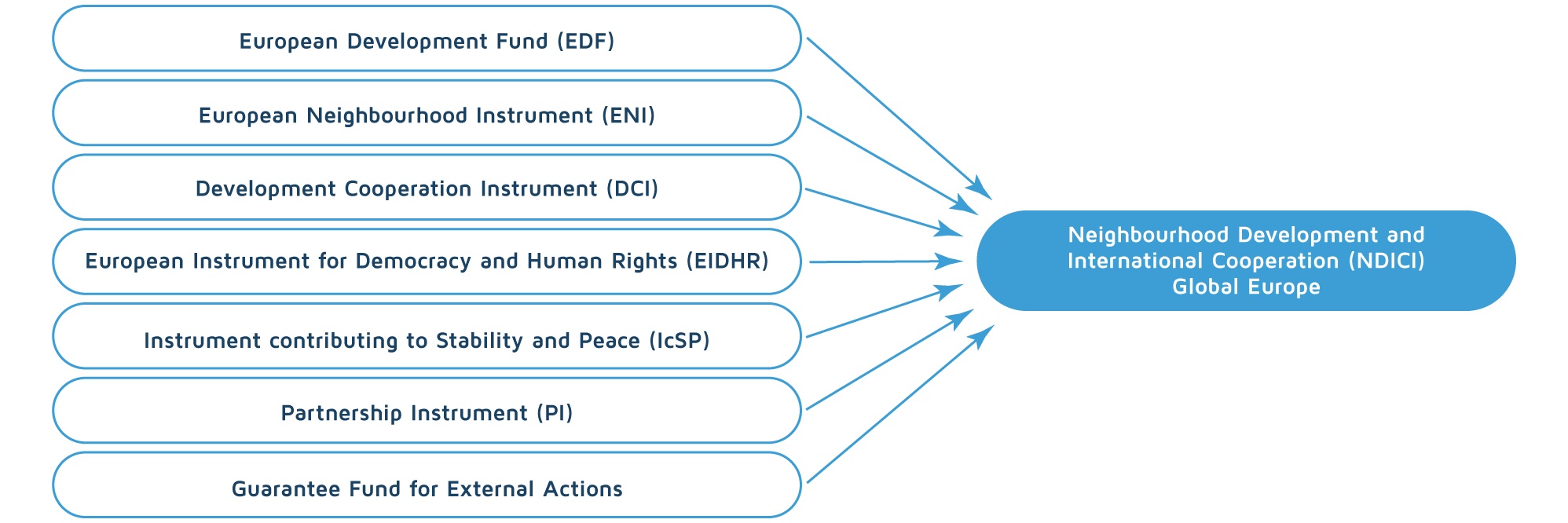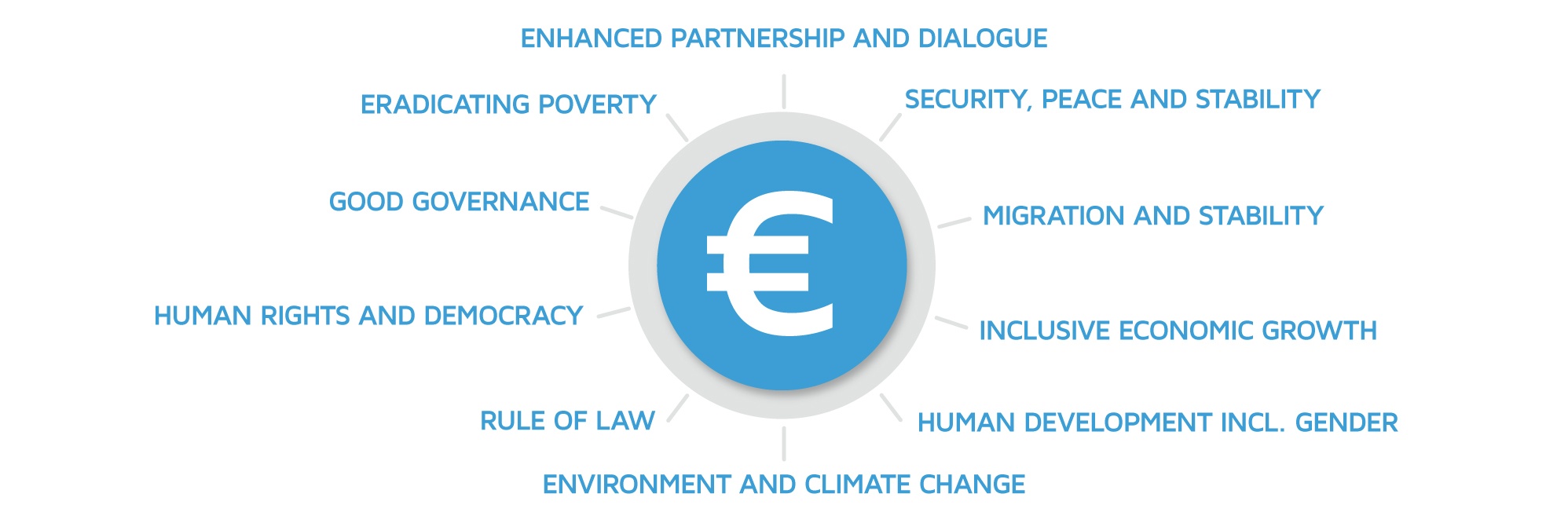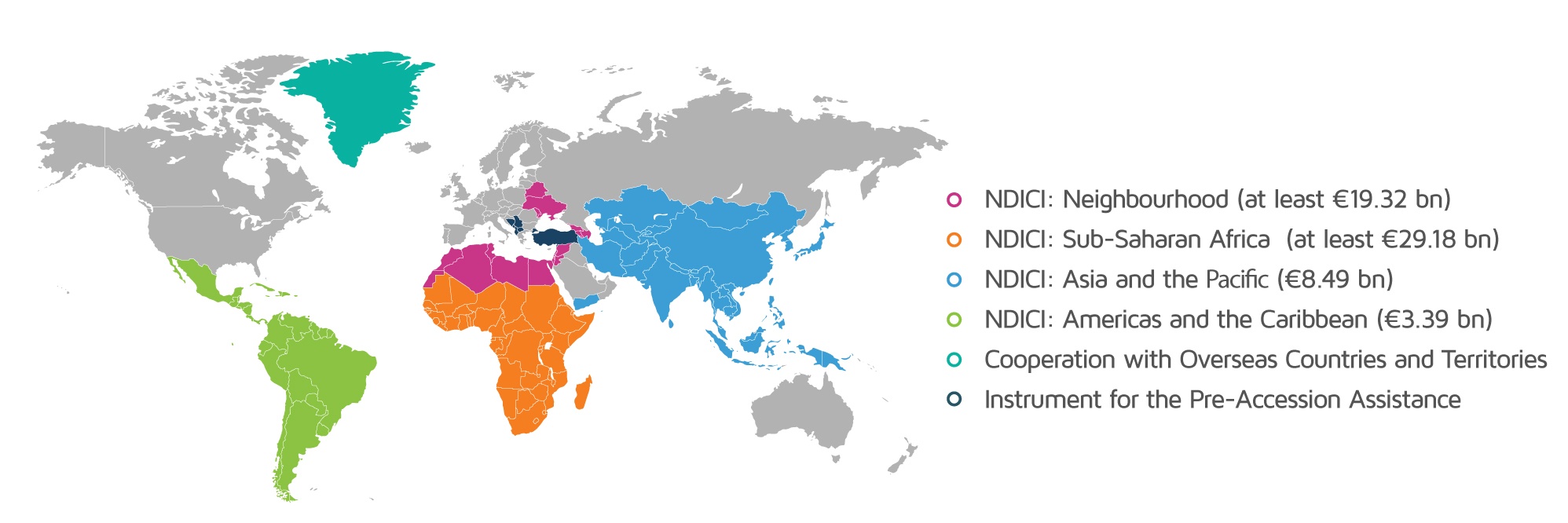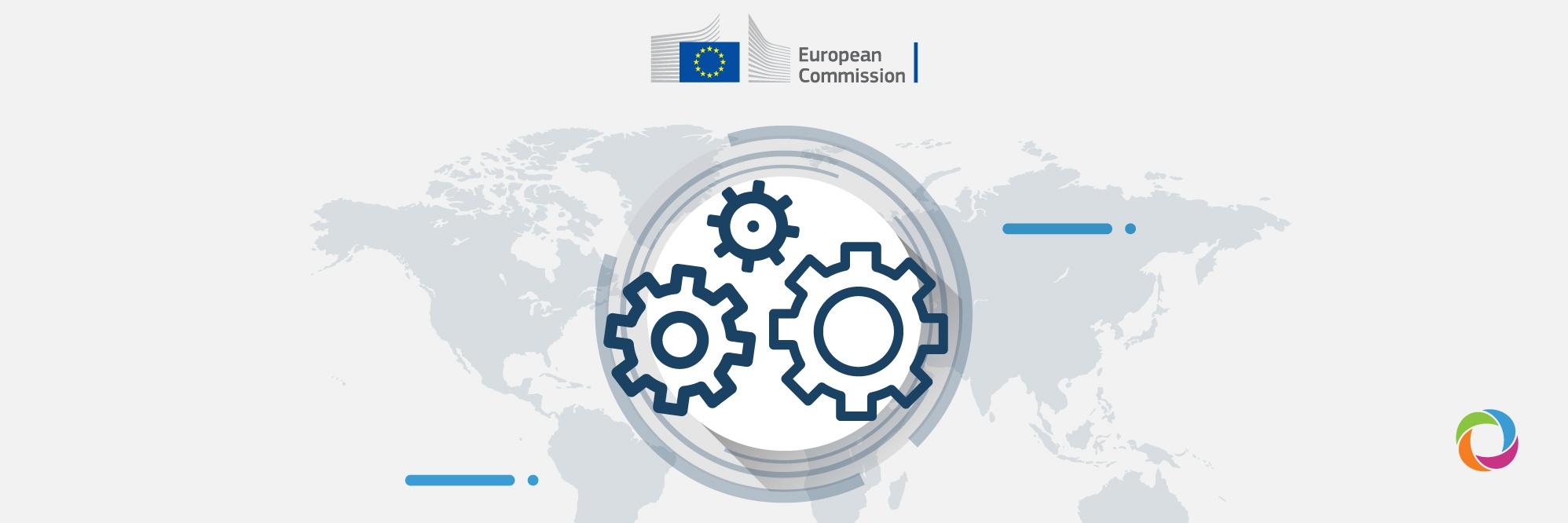Over the last few years, the European Commission has been working towards developing the Neighbourhood, Development and International Cooperation Instrument (NDICI) – ‘Global Europe’ financial instrument that will support the European Union’s (EU) external activities. Following the final step of the negotiation process between the EU Parliament, the Council, and the Commission, the NDICI proposed budget for 2021-2027 was finally approved at the beginning of June 2021. With an overall budget of €79.5 billion, the NDICI aims to improve cooperation with the EU’s neighbors and other non-EU countries, eradicate poverty and support sustainable development.
In the previous Multiannual Financial Framework (MFF) 2014-2021, EU spending for development purposes was fragmented and complex, combining 10 different financial instruments with specific or overlapping goals. Through the new NDICI, the EU aims to make development spending more efficient and pragmatic.
What is the NDICI?
The European Union, together with its Member States, is the world’s largest donor of development assistance, a fact that makes the announcement of the NDICI a significant event for the international donor-funded sector. The EU’s newest development instrument will support countries in need with their developmental challenges and will proactively promote the principles of sustainable development. At the core of the NDICI is cooperation with sub-Saharan Africa and the Neighborhood (the EU’s eastern and southern neighbors) where the largest share of the funds (61%) will be directed. Moreover, the NDICI – Global Europe instrument plans to increase the effectiveness and visibility of the EU’s external policies and interests. The NDICI unifies seven out of the 10 instruments for external action used by the EU prior to 2021, and specifically:
Fig.1. Prior instruments for external action unified under the NDICI

The NDICI aims to remove the barriers encountered within/between the previous development instruments and improve levels of efficiency and effectiveness. Moreover, the latest framework will adopt a comprehensive approach to sustainable development by tackling multiple tasks at the same time and interlinking all of the 17 Sustainable Development Goals.
Fig.2. Some of the NDICI goals

An overview of the NDICI budget
The budget dedicated for NDICI-Global Europe (2021-2027) amounts to €79.5 billion which represents a 12% increase compared to the previous long-term budget (2014-2020) and this will be spent across four pillars (geographical, thematic, rapid-response, and a cushion for emerging challenge and priorities).
🔹The geographical pillar
The NDICI prioritizes the geographical pillar with around €60.4 billion dedicated to foster dialogue and cooperation with third countries. The largest share of funds within the geographical pillar will be directed to the sub-Saharan region (€29.18 billion), followed by countries in the EU’s Neighborhood region (€19.32 billion) and Asia and the Pacific (€8.49 billion).
Fig.3. Funds allocated towards the geographical pillar

🔹The thematic pillar
Through the thematic pillar, the NDICI will allocate over €6 billion to support projects related to human rights, democracy, civil society, stability, and peace:
- Human rights and democracy – €1.36 billion
- Civil society organizations – €1.36 billion
- Peace, stability and conflict prevention – €0.9 billion;
- Global challenges (e.g., health, education, gender, migration) – €2.7 billion.
🔹The rapid-response pillar
Through the rapid-response pillar, the NDICI will allocate €3.18 billion to allow the EU to properly respond to situations of crisis, conflict, or instability. Moreover, through this pillar, the EU aims to take proactive measures to prevent conflicts and situations of crisis, strengthen resilience and address the EU’s foreign policy needs.
🔹Cushion for emerging challenges and priorities
The NDICI has dedicated €9.53 billion (or 12% of the total) as unallocated funds designed to act as a flexible cushion which will allow the EU to properly respond to unforeseen events and emerging challenges or to set new priorities.
DevelopmentAid is the leading provider of business intelligence and recruitment tools designed to assist those active in the development sector. Join today and gain access to exclusive information on the upcoming funding opportunities (tenders and grants) from the largest bilateral and multilateral donors.

